Putin unleashes his US-educated deal-maker for Trump talks
The Putin loyalist and Harvard-educated merchant banker with a history of deal making can speak the language the Trump administration will understand.
Among the veteran diplomats and national security advisers gathering for top-level talks between the US and Russia, Harvard-educated Kirill Dmitriev cut a distinct figure this week.
As Moscow seeks to match the Trump team’s deal making lineup, Dmitriev – a former banker with stints at McKinsey & Company and Goldman Sachs to his name – has emerged as an intermediary between the Kremlin and the White House.
Known for his absolute loyalty to President Vladimir Putin, with whom he has close familial and business ties, Dmitriev occupies a unique position in the Kremlin power structure: he wields financial, diplomatic and political influence, but hasn’t had career in Russia’s security services.
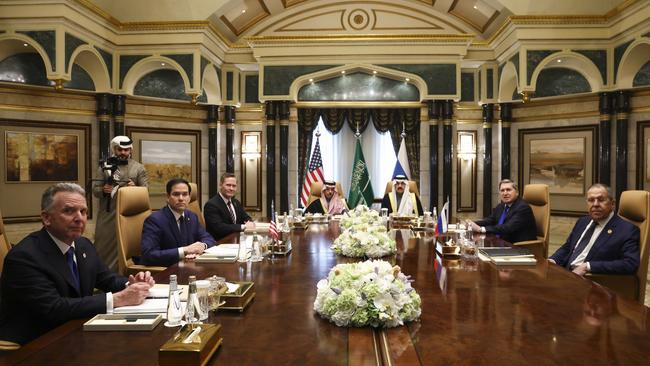
That, together with Dmitriev’s background cutting deals and past relations with allies of President Trump, likely makes him a key member of the Russia delegation, Kremlin observers say.
At the Diriyah Palace in Saudi Arabia’s capital of Riyadh on Tuesday, Dmitriev walked behind Foreign Minister Sergei Lavrov and former Russian ambassador to the US, Yuri Ushakov, a top Putin aide.
“This is the time of dealmakers. Putin has included such a deal-maker in his team who, like many investment bankers, is very pragmatic, able to talk in terms of exchanges and deals,” said Andrei Kolesnikov, a Moscow-based political analyst. “Also, this man is absolutely loyal to Putin.” Since the early days of Trump’s first presidency, the Kremlin has sought, with varying success, to use Dmitriev as an emissary with whom Trump’s aides would feel comfortable.
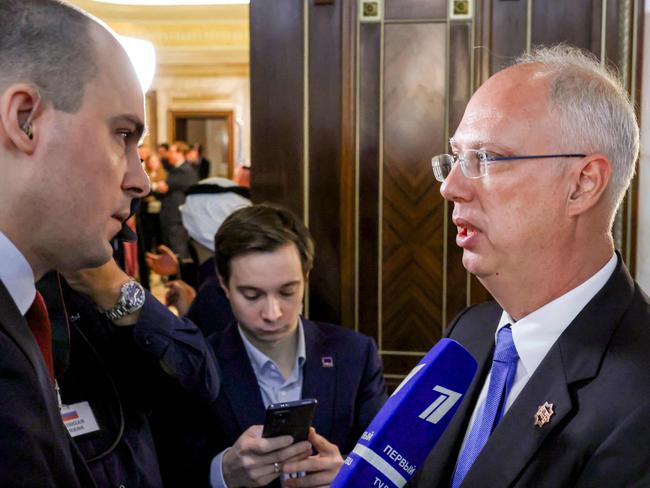
Ahead of the Tuesday talks, Dmitriev, who was sanctioned by the Treasury Department after Russia’s full-scale invasion of Ukraine, said that the Trump administration was “ready to listen to Russia’s position, ready to understand it and that is where dialogue begins.”
“The policy of trying to hold Russia back, of limiting Russia, has obviously failed,” he told Russian state news agency TASS.
Dmitriev said US businesses had lost $US300 billion owing to sanctions on Russia, without elaborating, and invited American companies to invest in Arctic oil and gas projects.
Russia’s Interfax news agency reported that Dmitriev would “discuss strengthening bilateral economic cooperation” with the US, a brief that suggests he would lead Russia’s push for sanctions relief, a key Kremlin demand in any talks.
Officially, Dmitriev is head of Russia’s $10-billion sovereign-wealth fund created by the Kremlin to invest in the Russian economy. But his ties to Putin run deeper. His wife is a close friend of, and in business with, Putin’s younger daughter, Katerina Tikhonova.
Dmitriev has already been foregrounded as a go-between in less formal dealings involving Trump’s personal friend and special envoy, Steve Witkoff, who also attended the talks in Riyadh. When Moscow last week released jailed US schoolteacher Marc Fogel in a prisoner swap, Witkoff, who travelled to Russia to bring him home, told reporters that a “gentleman from Russia” named Kirill had been influential in the swap.
The Kremlin pays close attention to the makeup of its negotiating teams, usually matching each member to a US counterpart, said John Bolton, former national security adviser to Trump during his first term.
The Kremlin likely chose Dmitriev as an opposite number to Witkoff, who made his fortune in real estate and whom the Russians know is close to Trump, Bolton said. Dmitriev would be able to discuss the broad outlines of how Russia would like sanctions removed, but he is also there to make Witkoff comfortable, he added.
“It sounds like there’s money in the equation somewhere,” Bolton said about the planned negotiations. “They probably think he could be appealing to Witkoff and that they could be speaking the same language.”
The Kremlin didn’t immediately return a request for comment. The 49-year-old Dmitriev, was born in Kyiv in what was then the Soviet Union, and polished his English as a high-school exchange student in the US. He earned a bachelor’s degree at Stanford University and an MBA. at Harvard.
His career began at Goldman Sachs and McKinsey & Company and he later headed a number of large private-equity funds, taking part in transactions with international companies in Russia.
The post-Soviet chaos in Moscow offered opportunities, and he worked there for the U.S.-Russia Investment Fund, established by the US government, and funded by USAID, to invest in the fledgling Russian economy. Tom Dans, a former employee of the fund, said that among its investments the fund snapped up controlling stakes in Russian media, and managed them so they were independent and profitable.
After Dmitriev joined the fund, he helped sell some of those companies back to the Kremlin and Kremlin-friendly oligarchs, said Dans, who later took a senior job in the Treasury Department under Trump’s first administration. Dmitriev later worked as a fund manager for Russia’ s sovereign-wealth fund, the Russian Direct Investment Fund. Dmitriev and the RDIF didn’t return requests for comment.
Maria Uvarova, Dmitriev’s former public-relations director, said he was recommended to Putin, who at the time was Russia’s prime minister, by Vladimir Dmitriev, then-head of state bank VEB who isn’t a relation.
“Kirill was perceived as a godlike person” at the fund, said Uvarova, who worked for him between 2013 and 2017.
Uvarova said she was woken up by her boss at six in the morning when Trump was elected in 2016. “Let’s make a statement in support of Donald Trump,” she recalls Dmitriev telling her over the phone.
His links to Americans at blue-chip companies also played to Dmitriev’s advantage.
He brought in Blackstone Group’s Chief Executive Stephen Schwarzman to an international advisory board for RDIF in 2011. Schwarzman, who didn’t return requests for comment, would later become a close Trump ally.
Dmitriev later added Leon Black, co-founder of fund Apollo Global Management, whose son Benjamin Black is now set to run a Trump-created government agency that will manage international aid. A spokesman for the older Black said he had resigned from the RDIF’s board following the Russian invasion of Crimea in 2014. Benjamin Black didn’t return a request for comment.
Days after Russia launched the full-scale invasion of Ukraine in February 2022, the U.S. Treasury sanctioned Dmitriev and RDIF, saying that “Putin and his inner circle of cronies have long relied on RDIF and Dmitriev to raise funds abroad, including in the United States.” Dmitriev spearheaded the international marketing of Sputnik V, Russia’s Covid-19 vaccine. He also has ties to Middle Eastern power players including Saudi Arabia’s Saudi Crown Prince Mohammed bin Salman and the United Arab Emirates’s Crown Prince Mohamed bin Zayed.
In 2016, Dmitriev helped negotiate a pact between Russia and Saudi Arabia, called OPEC+, to boost oil prices after decades of failed attempts. “He was very close to Gulf monarchies and helped build their connection to the Kremlin,” said Arsenii Pogosyan, then a spokesman for Russia’s energy ministry. “They trusted him.”
The Wall Street Journal

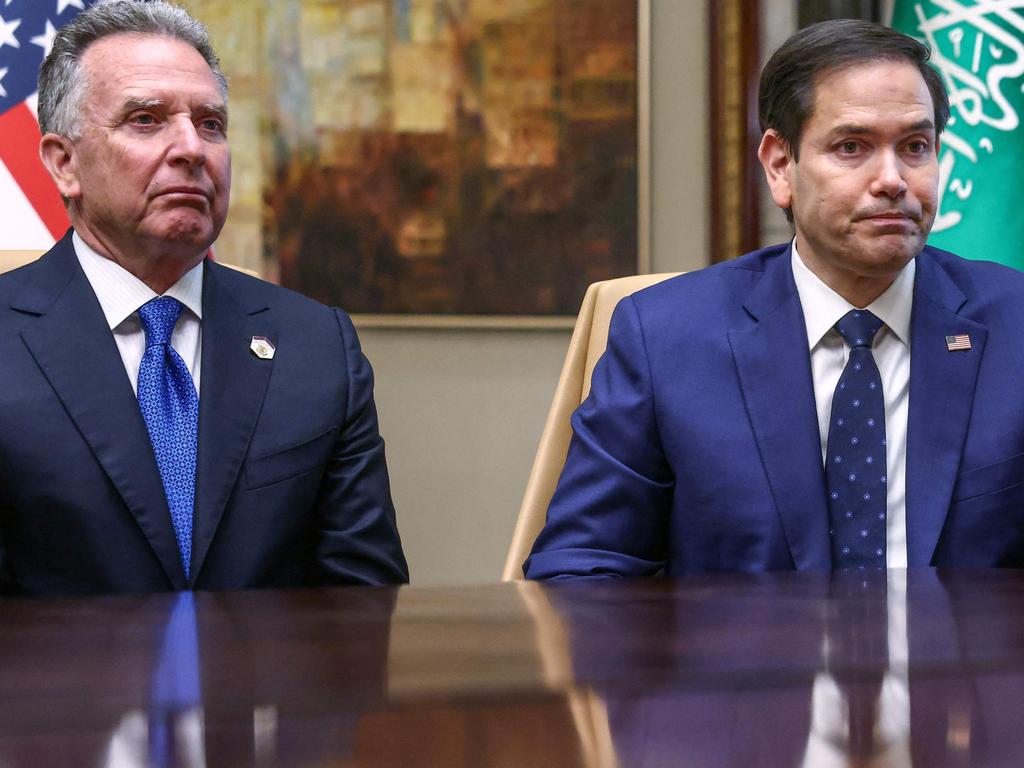
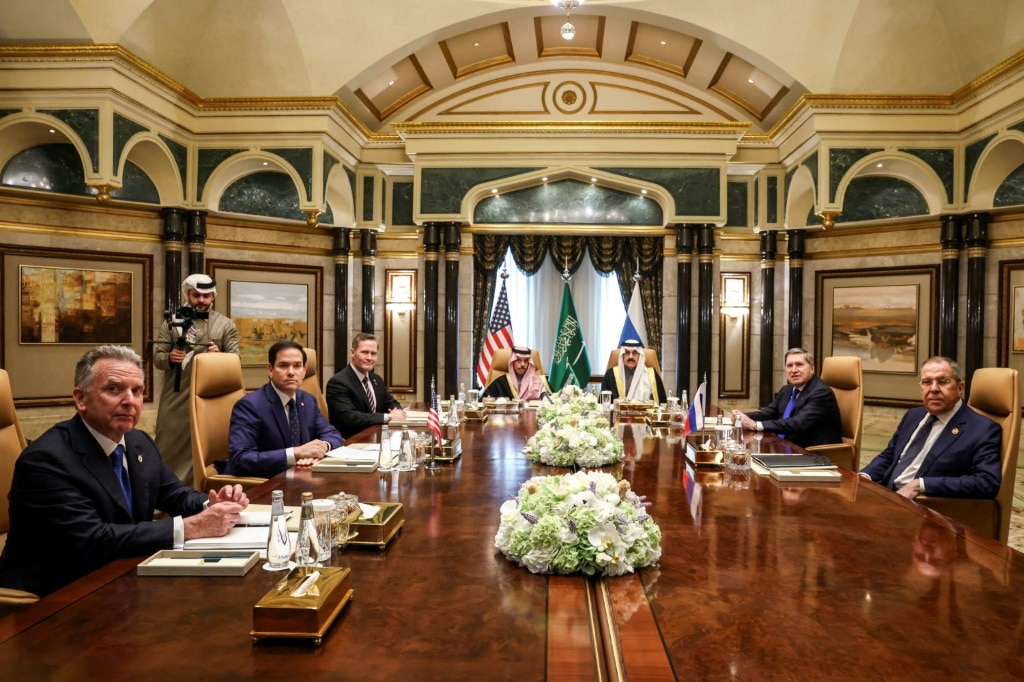
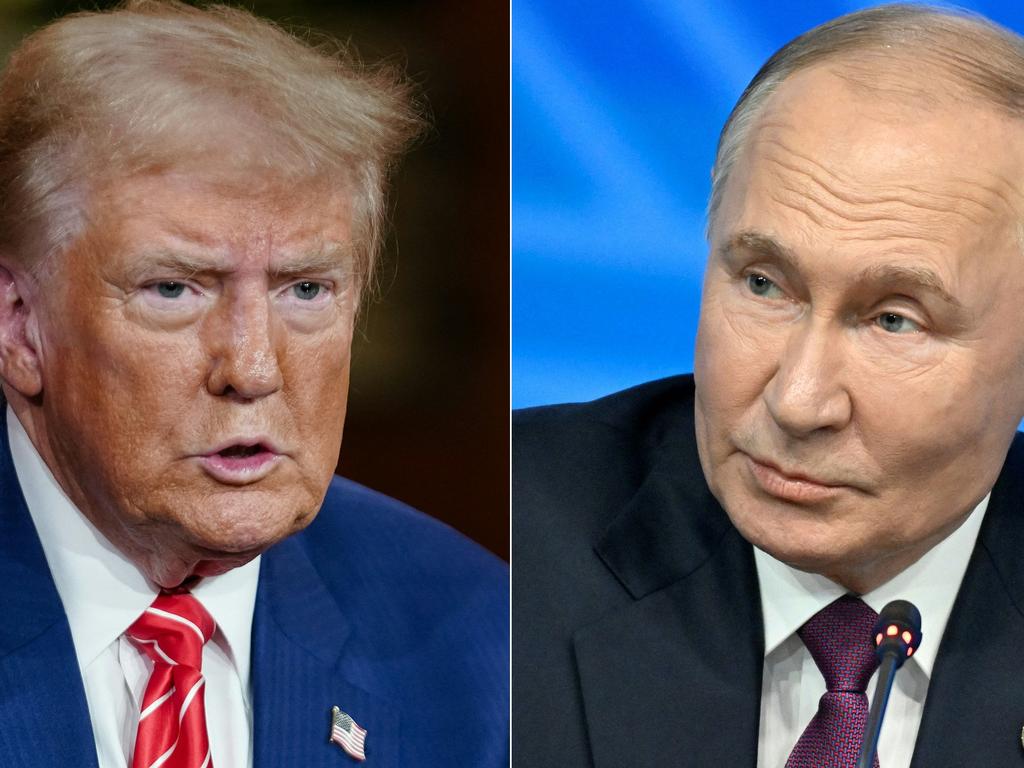


To join the conversation, please log in. Don't have an account? Register
Join the conversation, you are commenting as Logout